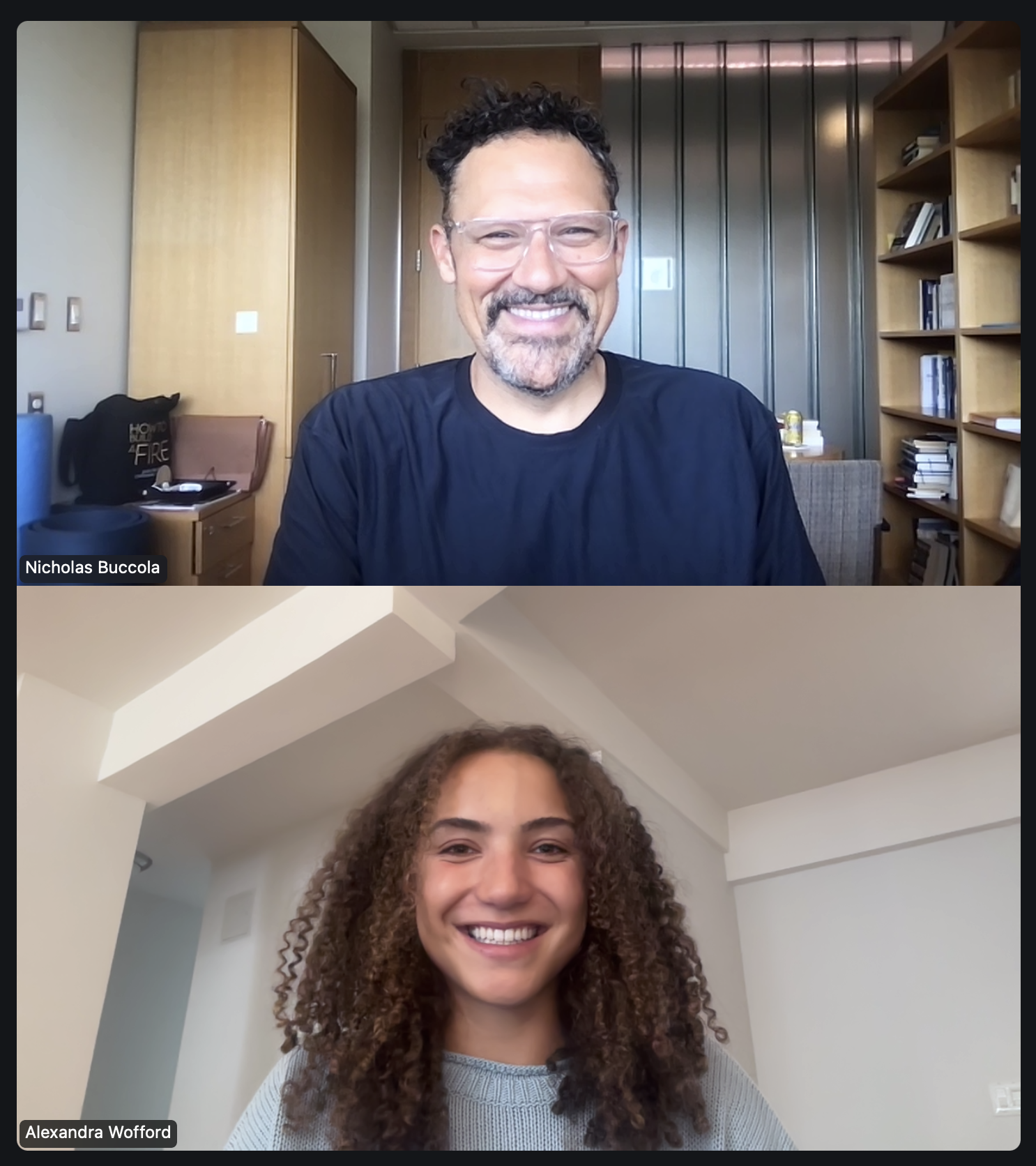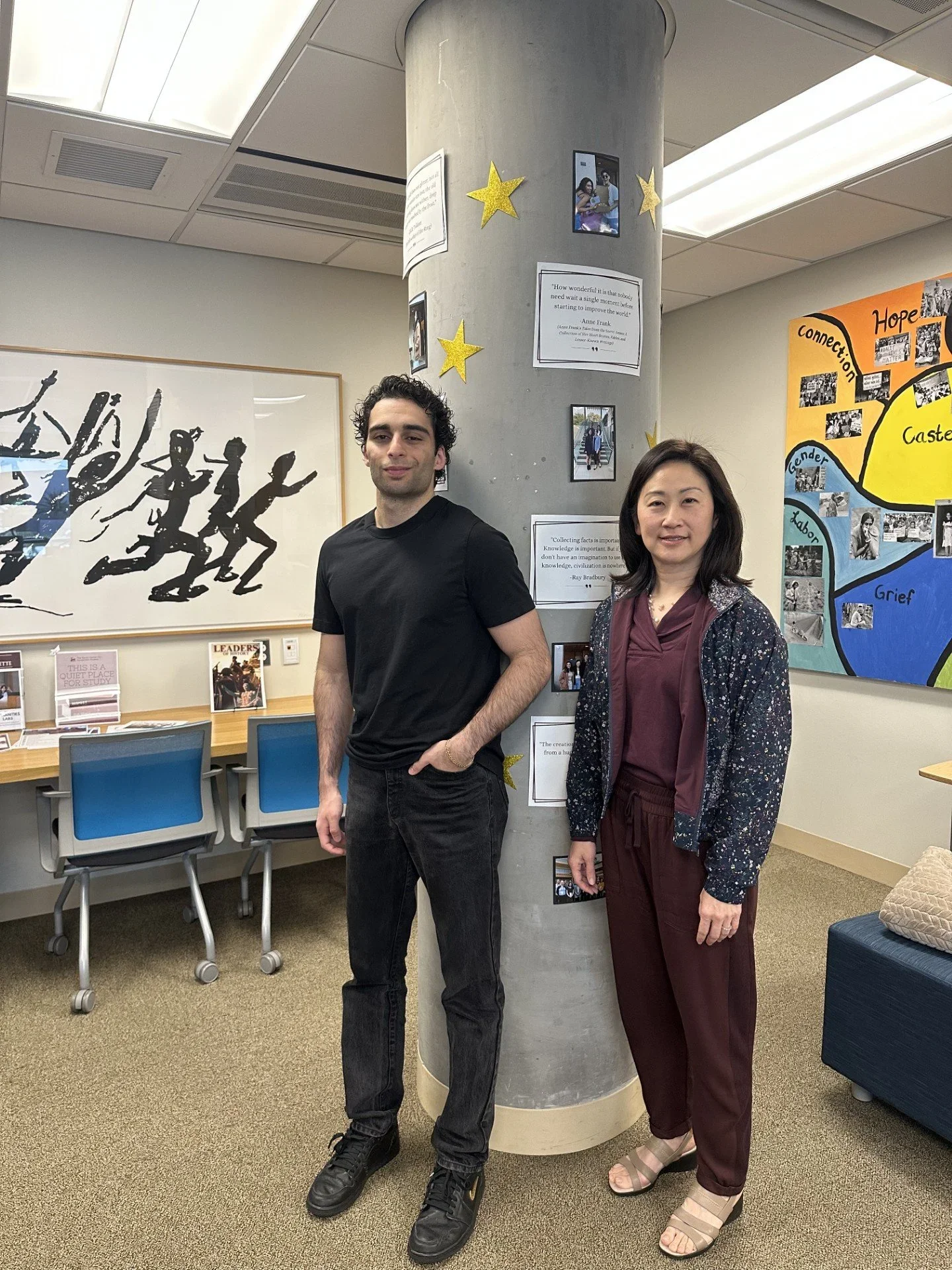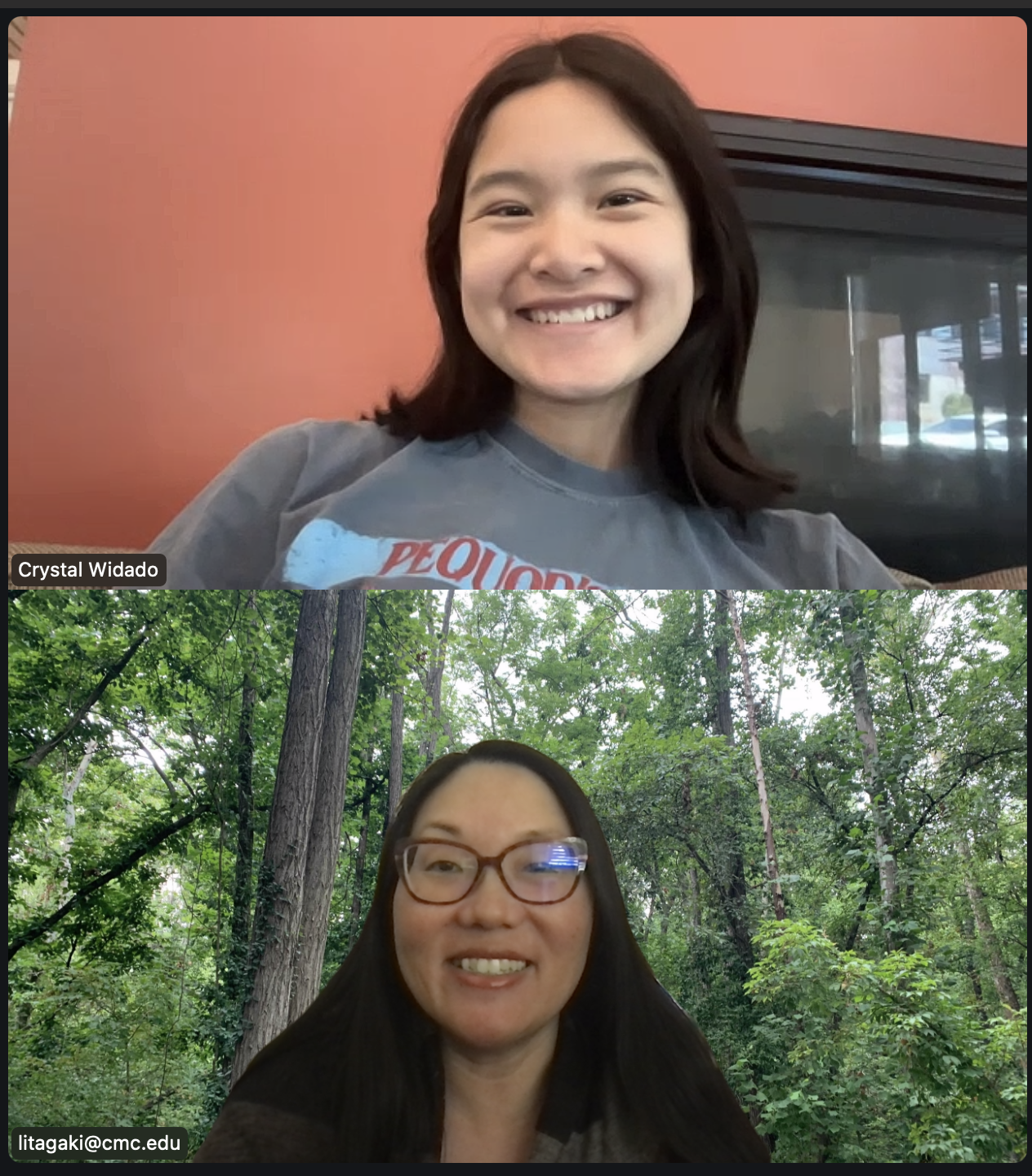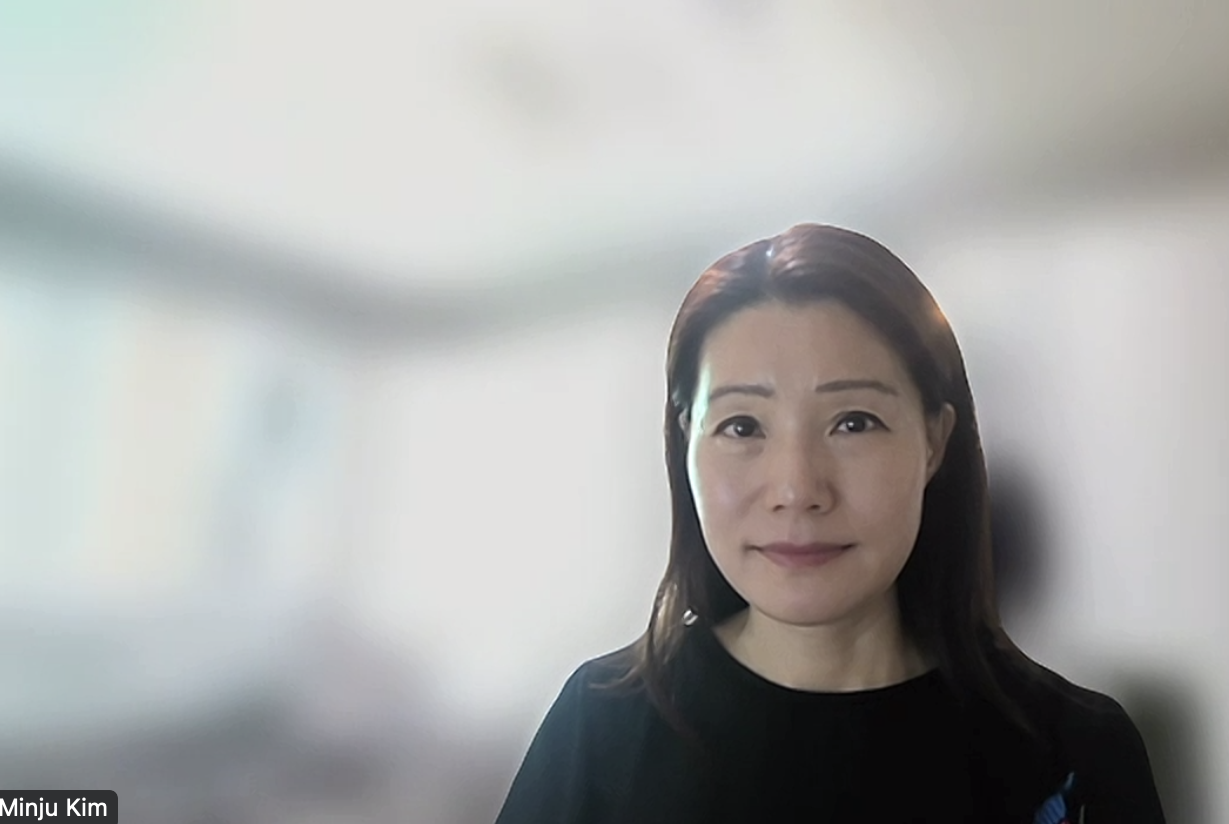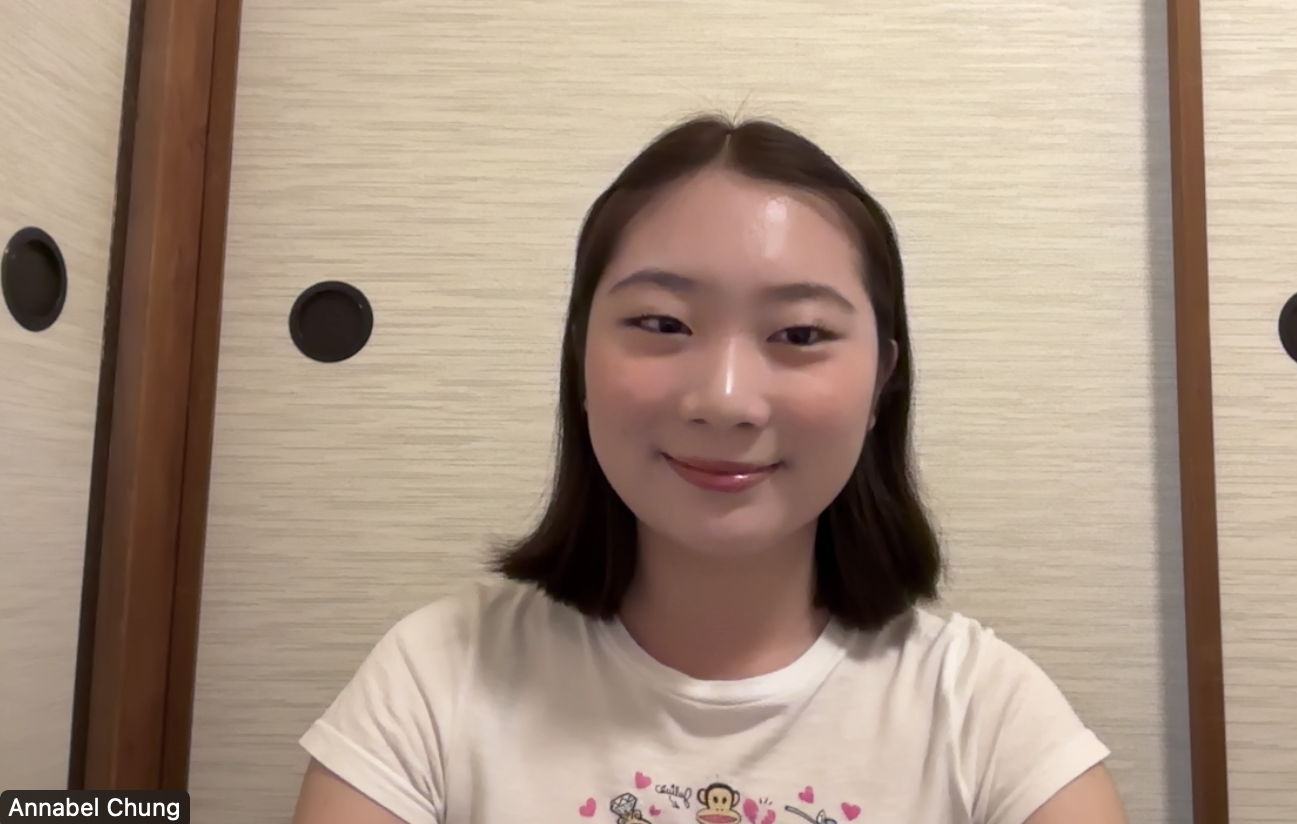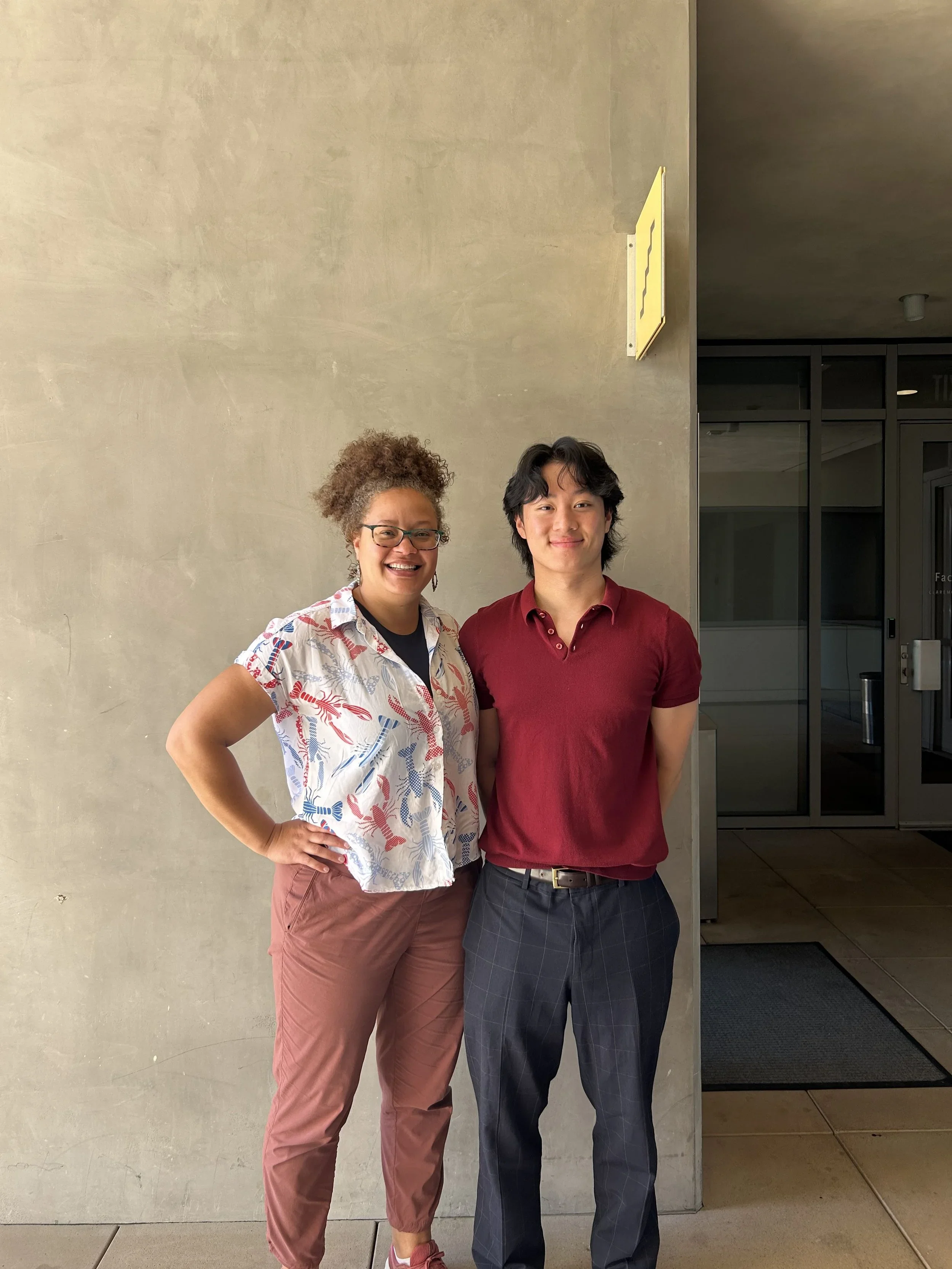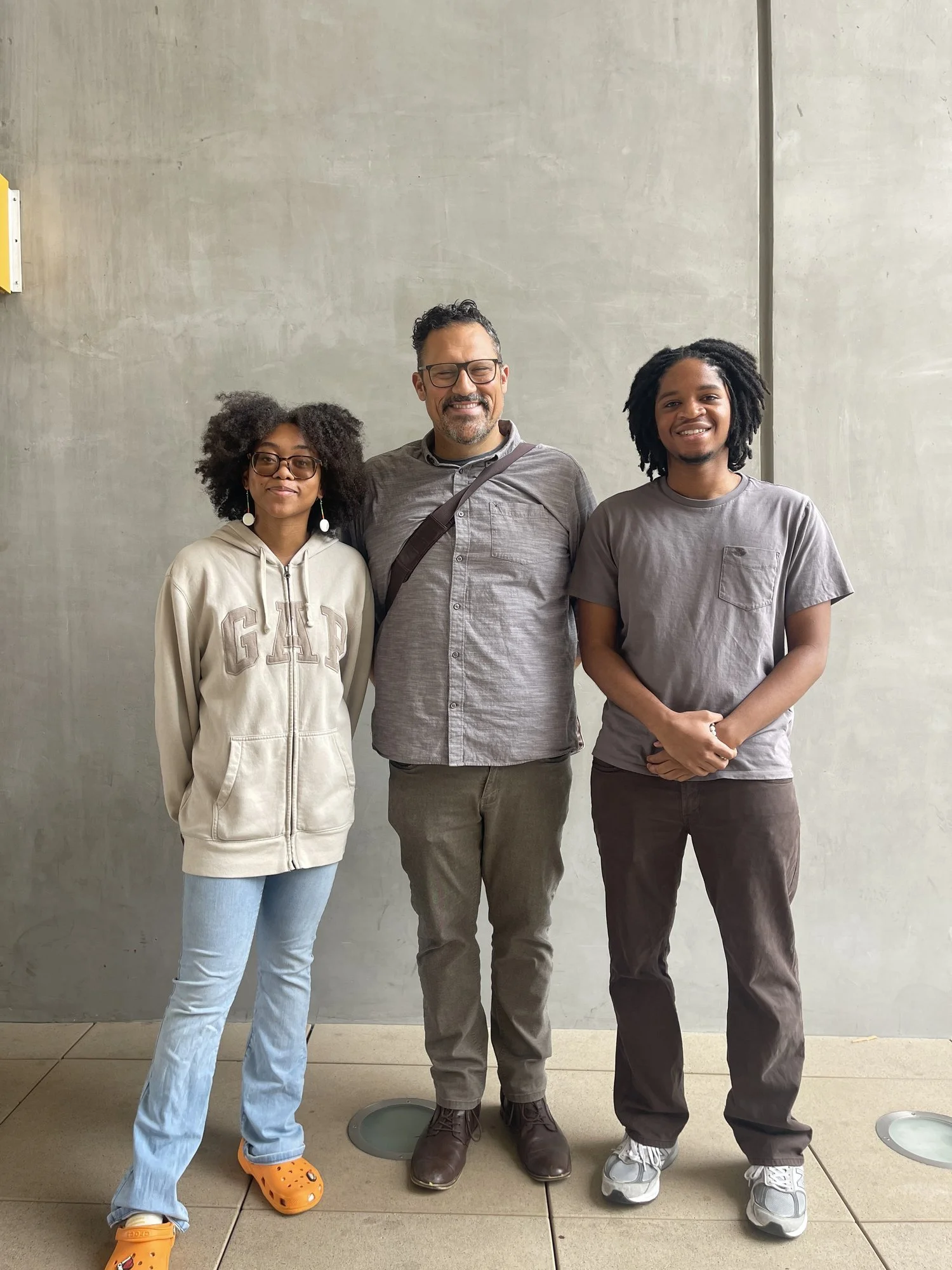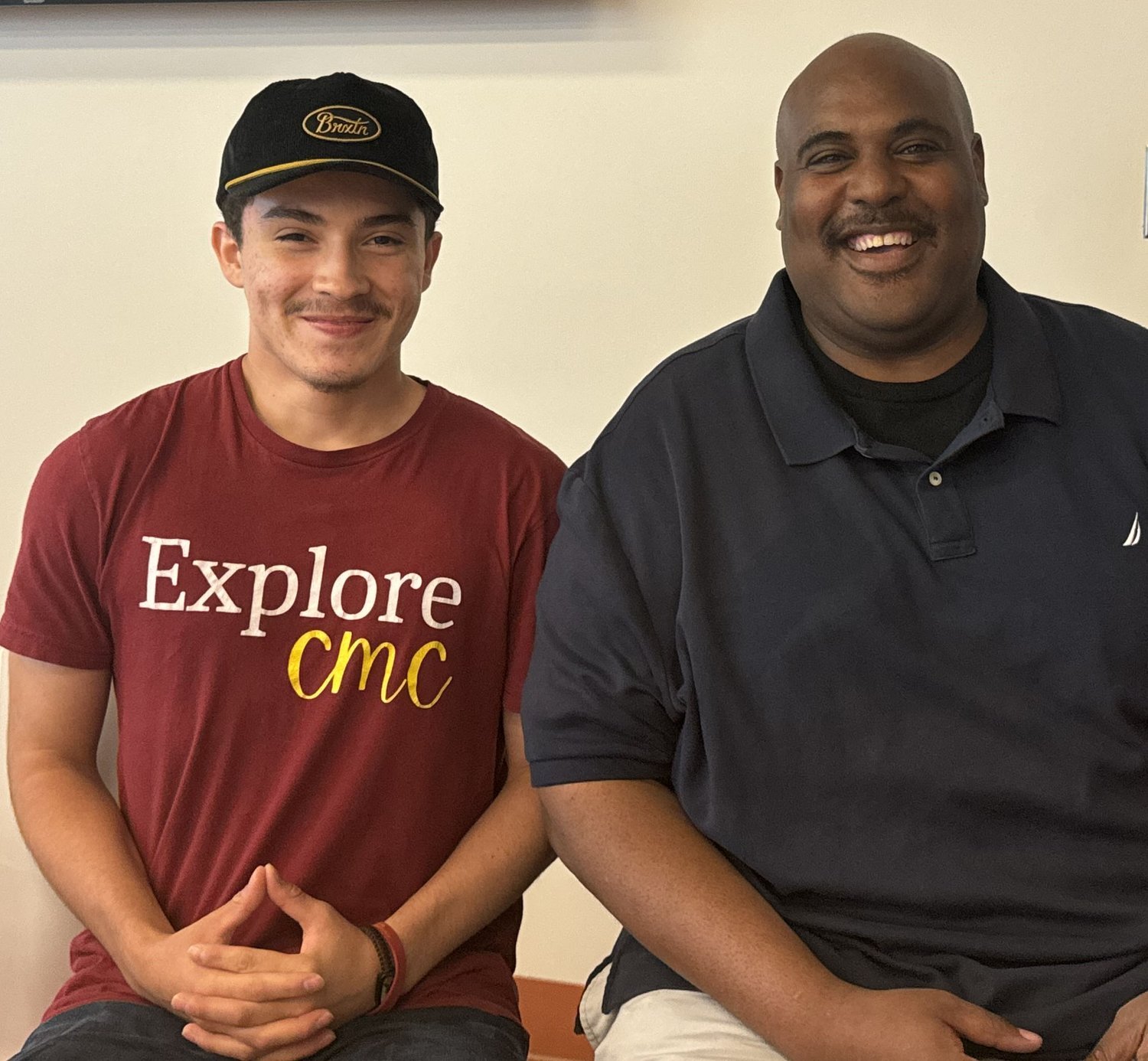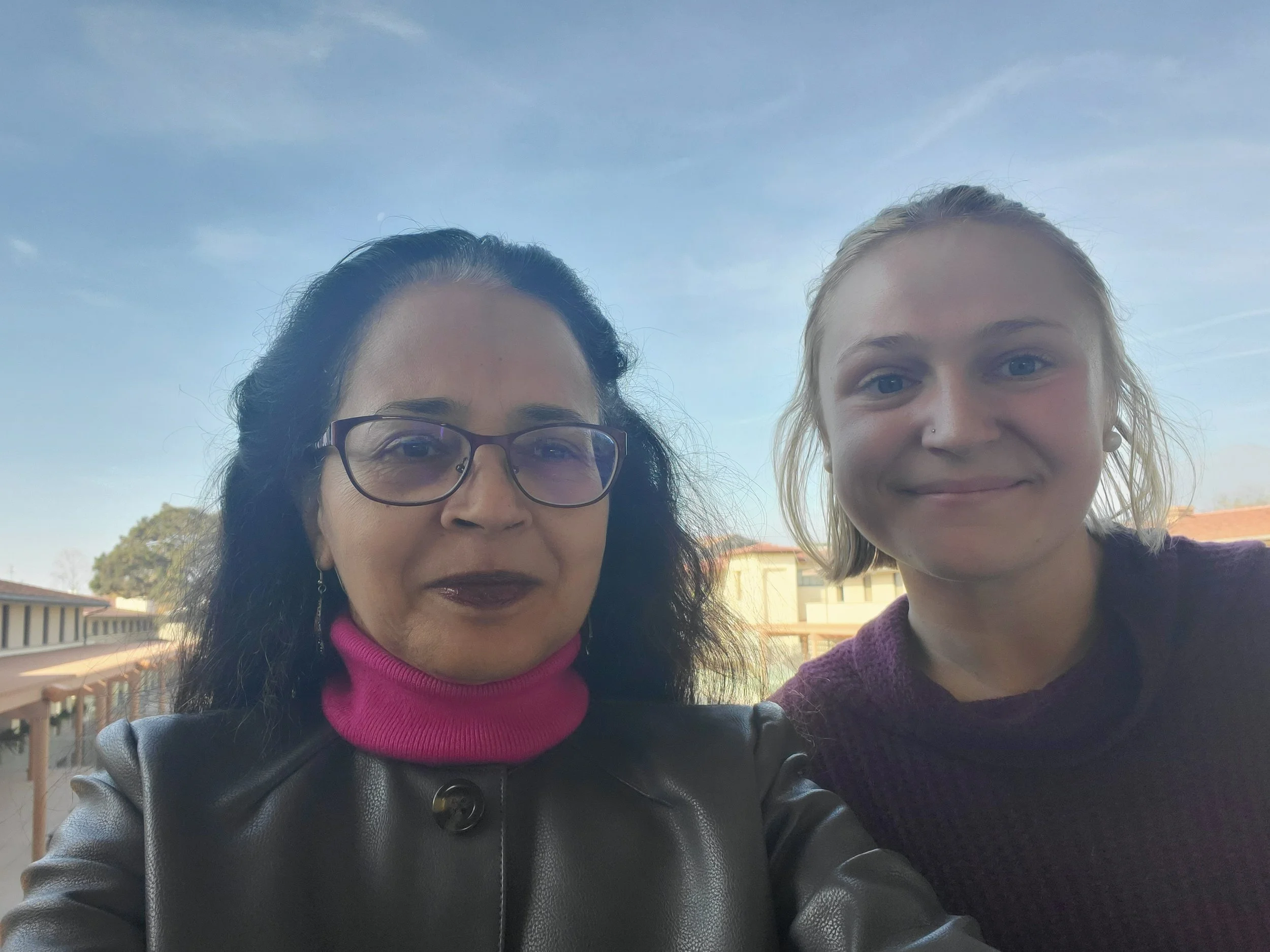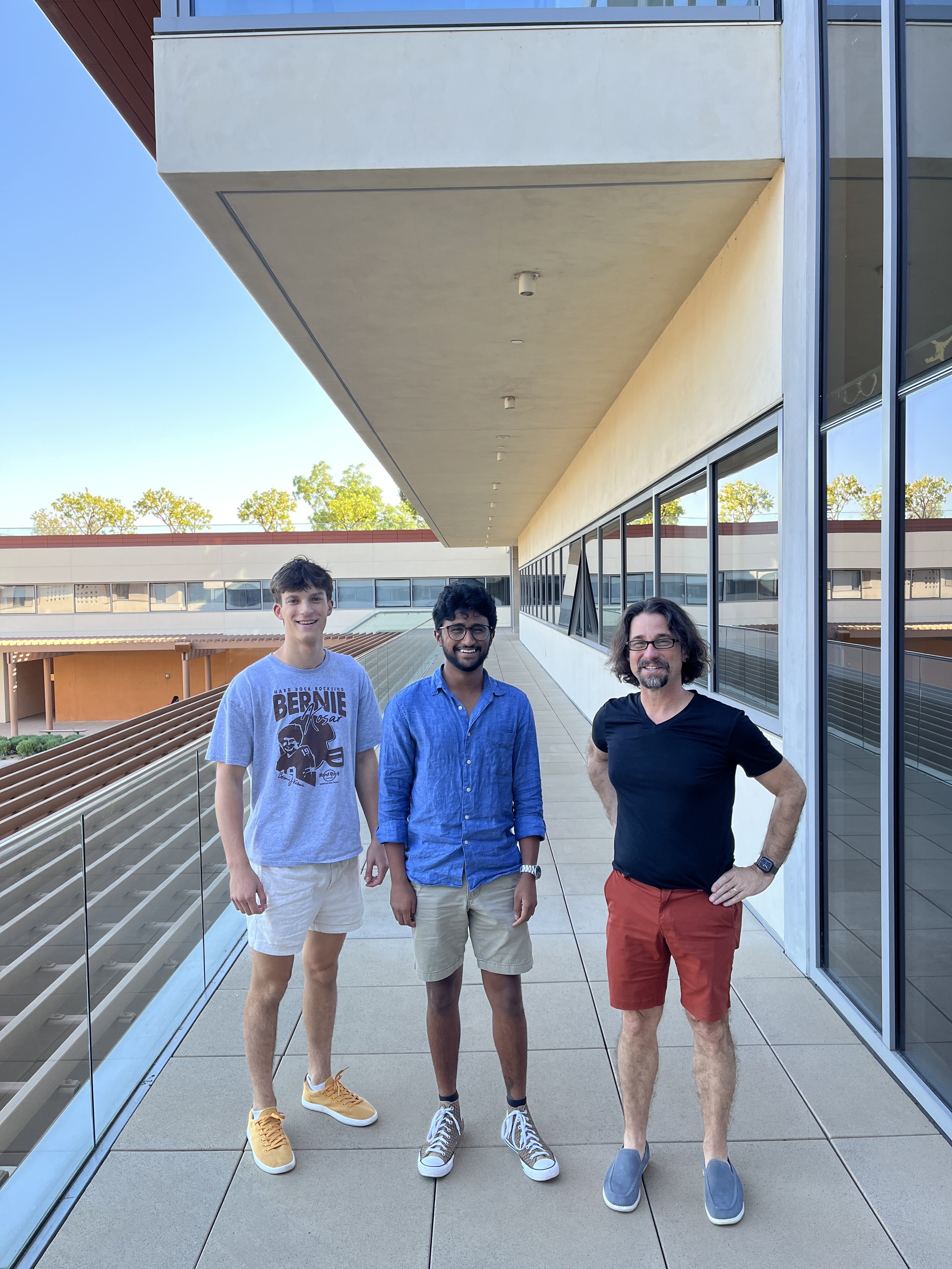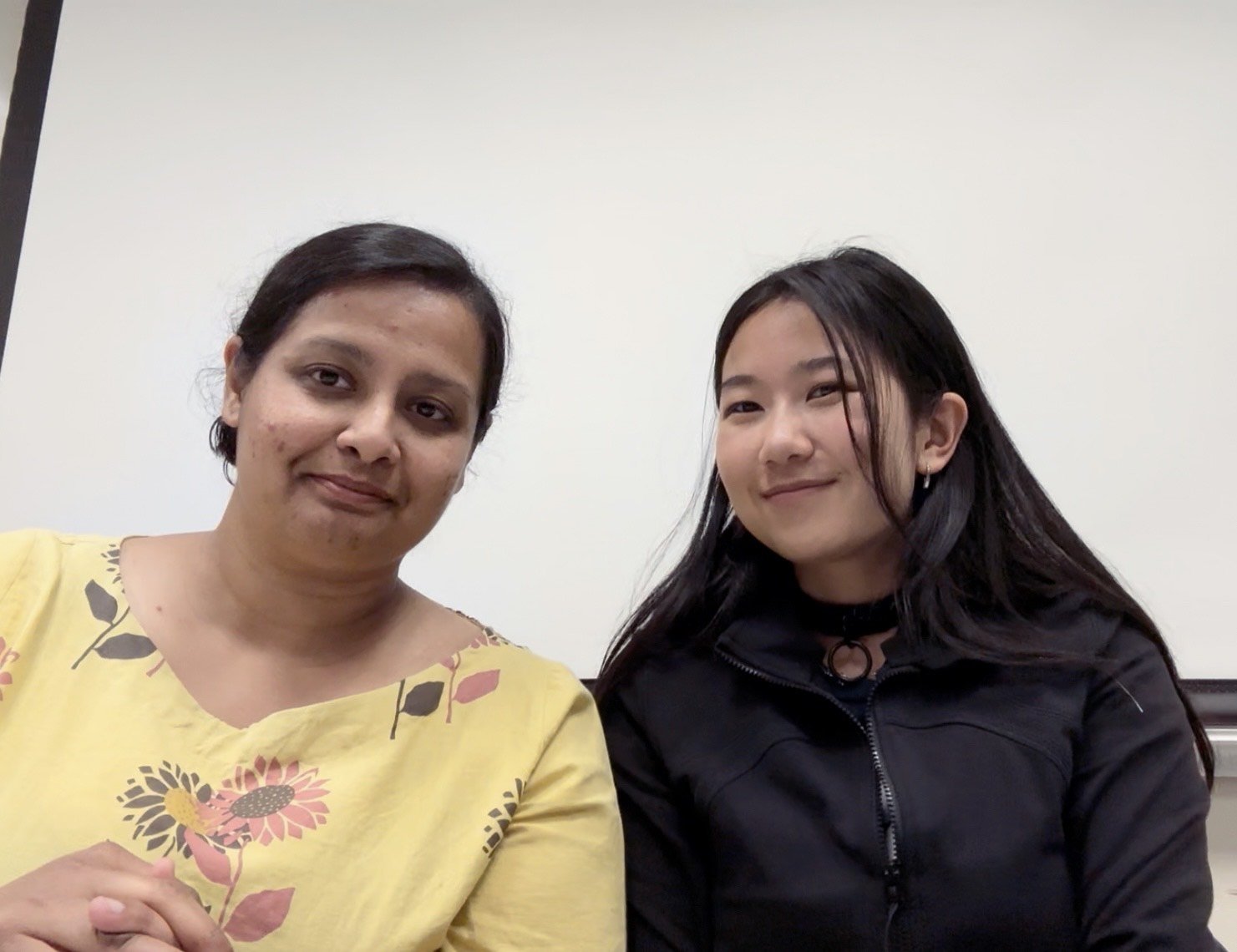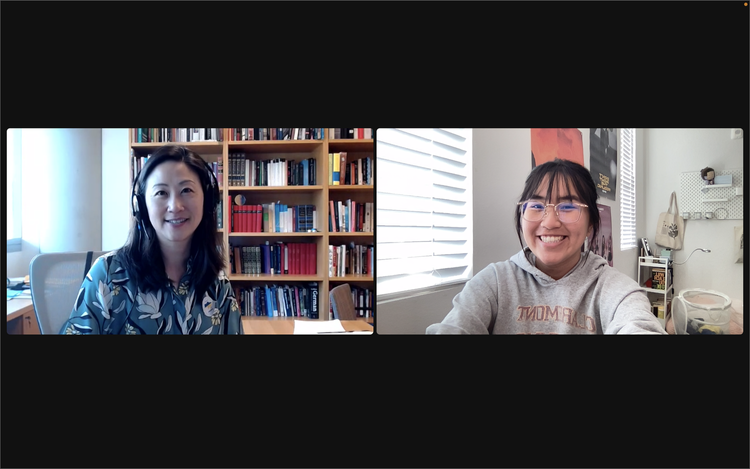Gould Sponsored Faculty Research
Summer 2025
Professor Nicholas Buccola and RA Alexandra Wofford
Make America What America Must Become
Make America What America Must Become: Loving this Country Like James Baldwin will be the first book-length study of James Baldwin’s philosophy of love and patriotism. In the book, I consider Baldwin’s philosophy of love by way of several key encounters in his life and work. In Part I: Shadows, I consider how Baldwin developed his philosophy of love in the shadows cast by the life and death of his father; the life and death of his best friend; and his early pursuit of romantic love. In Part II: Encounters, I consider what we can learn about Baldwin’s philosophy of love by way of his relationships with other artists and activists, including Martin Luther King Jr., Malcolm X, Medgar Evers, and Lorraine Hansberry, as well as Baldwin’s conflicts with conservatives such as William Faulkner, James Jackson Kilpatrick, William F. Buckley Jr., and Jerry Falwell. In the book, I argue that the two key elements of Baldwin’s philosophy of love are radical empathy and radical confrontation.
Professor Esther Chung-Kim and RA Andrew Rizko
Religious Influences in the History of Medicine
This project examines the long arc of religious influences in the history of medicine. To highlight a pivotal moment, this research examines the development of poor relief institutions alongside the popularization of medical knowledge in early modern Europe. In the efforts to reduce poverty, concerns for health care and healing emerged as important contributors to poverty alleviation. While the word, hospitality, has now taken on another meaning in the business sector, usually referring to the hotel industry, its etymology comes from the Latin word, “hospes” which means guest or stranger, where we get the words, “hospitable” and “hospital.” Hence, poor relief and medical care were closely connected.
Professor Lynn Itagaki, RA Kendall Higgins*, and RA Crystal Widado**
AI, Authenticity, and Authentic Learning*
The humanities classroom and its essay assignments have been upended since the easy, widespread access to large-language models/generative AI programs with a prompt and a click of a button. Students no longer have to struggle with what they uniquely think and how to distinctively communicate it in prose. What authentic learning is possible with LLM/gen- AI programs instantly creating prose essays—the traditional proof of one's individual thinking and humanistic inquiry? These LLM/gen-AI programs appear to thwart this fundamental liberal arts concern of developing innovative thinkers. This essay wrestles with the questions of authenticity and what can be considered authentically and distinctively human in this technological moment. More specifically, abstract concepts such as authenticity, authentic learning, and most importantly, the human, often have racialized impacts that produce material inequalities, and this essay proposes to trace the interplay of these ostensibly race-neutral terms through Asian American studies in the US, an interdisciplinary research area which coalesced around political and cultural debates over what was authentically Asian/American. How might we understand these new concerns of how the widespread use of gen-AI will impede human thinking through these continuing questions of what makes the authentic human.
Multiracial Identities**
This original essay analyzes a significant development in racial theories that shows connections not produced by making different racial formations similar but instead by acknowledging the impossibility of producing sameness—incommensurability. To posit incommensurability as an analytic provokes profound questions central to this field of study: Does comparative racialization happen even when we are trying not to compare? Does comparison always result in hierarchization and violence? Does comparison always produce exploitation, extraction, extinction—and capitalism? How does incommensurability fit into relationality taken up by postcolonial and diasporic critics, especially Black, Indigenous, and women of color feminist and queer of color theorists? How do concepts of intersectionality and assemblage interact with incommensurability or are they in opposition? I posit that how multiracial identities have appeared in mainstream politics and society can trace the process and possibilities of incommensurability for comparative racialization, exposing the historically monoracial demands for choosing one identity above all others, most recently in electoral polling and government surveys.
Professor Minju Kim and RA Annabel Chung
A Corpus-based Study on the Development of the Stance-Marking Functions of Korean Question Words
This study uses diachronic and synchronic corpus data to examine the development of the stance marking functions of three Korean question words, mwe ‘what’, mwe-l ‘what-accusative marker’ and mwusun ‘what kind of’. Mwe-l and mwusun encode the speaker’s challenging and rejecting stance while mwe conveys more diverse meanings. This study examines their development by paying attention, for the first time, to the critical period from the 1900s to the 1930s when western-style novels started to be produced, providing access to a more conversational use of Korean. Textual evidence shows that among the three, mwe-l was first established as a rejection marker before 1900s, followed by mwe around 1920s and then mwusun in 1930s. This study proposes that mwe-l and mwusun developed into rejection markers from their frequent use in similar rhetorical questions which emphatically reject an interlocutor’s earlier utterance. Studies showed that across different languages, interrogative constructions often develop into disaffiliative stance markers such as challenges and rejections (e.g., Chinese shenme ‘what’). This study proposes that this propensity has much to do with the prevalent use of rhetorical questions in challenging interlocutors. This study also tries to account for how mwe can express contradictory meanings by proposing that mwe became a rejection marker due to the influence of mwe-l and subsequently underwent extensive functional shifts from rejection to dismissal, to detachment, and finally to accommodation and resignation, which was facilitated by its frequent collocation with the sentence ender ci ‘you know’.
Professor Briana Toole and RA Samuel Yao
By the Roots: How We Reclaim the Radical Power of Resistance
In his 1971 Theory of Justice, John Rawls articulates the central elements, scope, and limits of civil disobedience. Civil disobedience, a conscientious, public, nonviolent breach of law, is permissible only in cases where there is a major breach of the principles of justice and may only be pursued as a last resort. On Rawls’ account, civil disobedience is reconceived as a primarily communicative act, one that seeks to persuade the majority by appeal to shared principles of justice. Little attended to in discussions of Rawls’s account are the epistemic barriers to communication.
Drawing on work from Maria Lugones, I argue that those engaged in civil resistance speak from resistant worlds-of-sense. But, resistance must speak to “official” or mainstream worlds-of-sense, worlds that reflect the values, assumptions, and commitments of the dominant. From the perspective of this world-of-sense, the claims made by those engaged in resistance may be rendered illogical. Worse, that world may render invisible the injustice that resistant agents seek to remedy. As such, those who occupy the mainstream world-of-sense may downgrade the credibility assessments of those who speak from resistant worlds, and reasonably – from their perspective – dismiss the claims of those engaged in civil resistance.
I argue that civil disobedience, as Rawls conceives it, is thus subject to a paradox. On the one hand, the primary aim of resistance is to communicate to a wider public. On the other hand, this wider public may lack the necessary epistemic background to appropriately engage those communicative attempts. Thus, civil resistance is unlikely to succeed in its communicative aim. My aim, in drawing attention to this paradox, is to motivate reconceiving of resistance as engaged in epistemic disruption, an act which requires confronting directly the world-of-sense of the dominant.
Academic Year 2024-2025
Professor Nicholas buccola, ra Asia best, RA elijah Emory-muhammad
My Brother’s Keeper
My Brother’s Keeper is the proposed third volume in a trilogy in which I am considering the civil rights and conservative movements together. In the first volume, The Fire Is Upon Us, I considered the clashing ideas of James Baldwin and William F. Buckley Jr. – the leading writers associated with the respective movements. In the second volume, One Man’s Freedom, I considered the clashing ideas and actions of Martin Luther King Jr. and Barry Goldwater – the most prominent leaders of the respective movements. In My Brother’s Keeper, I focus leading grassroots activists associated with each movement and consider what motivated these activists and how their stories can help us make sense of our own lives as citizens. My hope is that the trilogy, taken together, will contribute to our understanding of American political history, the American present, and the possibilities for the future.
Professor Esther Chung-Kim and RA Jason Beshai
The History of Medicine
This research project examines the history of medicine by focusing on the intersection between religion and medicine in early modern Europe. In addition to the two main purposes for a university education, namely to prepare for religious or political careers, universities throughout Europe, an increasing numbers of university-trained physicians filled the ranks of their professional guild in order to solidify their authority in matters of public health, accreditation, and even governance of their cities. Hence religious leaders and reform-minded physicians, as well as the institutions they served, influenced the religion and medical reform, education, and public health policies of their cities. The significance of this project is that it fills a gap in the history of medicine by examining the connections between the reform of religion and changes in medicine during the early modern period just before the Scientific Revolution.
Professor Gaston Espinosa, RA Jaden Andrews, RA Sophia Islas, and RA Sophia Prosper
Religion, Race, Gender, and the American Presidency
This Gould Center Projects examines the intersection of Religion, Race, Gender, and the American Presidency. In particular, students focus on how American presidents from 1996 to 2024 have reached out to the 10 largest voting segments of the American electorate: Blacks, Latinos, Asians, Jews, Muslims, Catholics, Evangelicals, Mainline Protestants, Seculars and Women. Students focus particular attention on the candidate's outreach, especially in the 2024 Election and how each of these 10 segments of the electorate in turn voted on Election Day 2024. The RAs also contributed to two Gould Center Events at the Athenaeum, the Religion, Race, Gender, and 2024 Election Conference on October 31, 2024, and the Religion, Race, Gender, and the 2024 Post-Election Results Luncheon on Thursday, November 7th. Their research will contribute to two books: Religion, Race, Gender, and the American Presidency, 2000-2020, which has been accepted for publication by Routledge Press and is due out this Spring 2025 and Religion, Race, Gender, and the 2024 Election, which will be completed this summer 2025.
Professor Yannis Evrigenis and RA Mea Shelton
The Bodin Project
We will be working on a new edition of Jean Bodin's Six Books on the Commonwealth. This work, which influenced political thinkers from Hobbes, Locke, and Rousseau to the American Founders, and gave us the modern definition of sovereignty, is currently not in print in any language and has not been translated into English since 1606! This new edition will be the first to made available in English, the last version produced by Bodin himself.
Professor Michael Fortner and RA Lucio Vasquez
United We Fall: Race, Place, and Working-Class Politics in New York City
"United We Fall: Race, Place, and Working-Class Politics in New York City" examines the rise and decline of the New Deal Coalition in New York City, focusing on the role of left-leaning organizations and mid-20th-century Democratic Party reforms. The book analyzes the social and political interactions between White ethnics and racial minorities in Harlem, the South Bronx, and Bedford-Stuyvesant from the 1920s to the 1970s. Utilizing a range of primary sources, it explores how multiracial working-class alliances were built and later weakened by anti-Communism and the decline of urban political machines, offering fresh perspectives on the city's postwar political landscape and broader American political development.
Professor Lynn Itagaki, RA Katherine Cheng, RA Jesus Lara, and RA Crystal Widado
The Futures of Comparative Racialization
Comparative racialization examines how groups are racialized in relation to one another and how this interchange manages and prioritizes claims on the state. These RAs will support foundational research on this project with the end goal being the development of two article- and two book-length projects in the field of comparative racialization.
Fall 2024
Professor Minju kim and RA youngmin oh
Laughter in Solidarity: Korean Mothers’ Complaints about Children
Utilizing video- and audio-recorded natural conversations, this study examines mothers’ complaints to fellow mothers about their own children and investigates the interactional work that laughter performs in these conversations. Complaining about one’s own child can be face- threatening both to the speaker and to the recipient, similar to self-criticism. Data show that mothers’ complaints are often interspersed with laughter produced by both the speaker and the recipient. Laced with laughter, mothers safely complain about their children and the recipient readily sides with the mother, confirming that the child’s action was indeed complainable; the interactants often co-construct their turns and repeat each other’s utterances, displaying their affiliated stances.
Summer 2024
Professor Minju Kim and RA Youngmin Oh
Two Opposite Implicatures of a Focus Particle: Korean Discourse Markers with Focus Ya
Analyzing diachronic and synchronic corpus data, this study investigates the development of two Korean discourse markers, concessive ha-ki-ya (‘do’-nominalizer-focus) and the now-obsolete refuting verb-ki-ya (verb-nominalizer-focus). The intriguing question of how these two cognate forms sharing nominalizer ki and focus ya ended up encoding two opposite meanings has not been explored. This study proposes that focus ya can evoke two opposite scalar implicatures, “the most likely one” and “the least likely one,” and that the former implicature prompted the emergence of concessive ha-ki-ya, while the latter prompted that of refuting verb-ki-ya. Context-triggered scale reversal enables ya to have two different implicatures, and this is a phenomenon also observed with other focus particles (e.g., English only, Korean na ‘as many as’; ‘just’).
Academic Year 2023-2024
PROFESSOR NICHOLAS BUCCOLA, RA ASIA BEST, RA ELIJAH EMORY-MUHAMMAD, AND RA LUIS MENDOZA
BALDWIN ON LOVE
The idea of love was at the center of James Baldwin’s philosophy. But Baldwin’s invocation of love in his essays, fiction, and activism was complex and unconventional. In my book-in- progress, tentatively called Love Letters from James Baldwin, I am exploring the idea of love in Baldwin’s life and thought by way of a series of “meditations” – reflections ranging from a paragraph to a few pages in length. Each meditation is inspired by something Baldwin said, wrote, or did over the course of his life. I weave these meditations on Baldwin with reflections on my own family’s complicated racial history. This engagement is inspired by Baldwin’s insight that we cannot love ourselves or others unless we are willing to come to terms with our history (both individually and collectively). My hope is that the book will deepen our understanding of Baldwin’s philosophy of love and help us achieve greater wisdom about how we ought to express love in the world.
PROFESSOR ESTHER CHUNG-KIM AND RA DANIEL PENALOZA
HISTORY OF MEDICINE AND ITS ACCESS
This research project examines the origins of growing access to health care in early modern Europe. Understanding how leaders in early modern Europe utilized their networks to draw on their collective medical knowledge to increase accessibility to secret recipes, home remedies, and herbal medications for the general population is an important context for the growing dissemination of medical knowledge. During the early modern period, many physicians and lay healers cited the religious imperative of caring for one’s neighbor, especially the needy ones, as the main reason for their services and the dispensing of medications. In the sixteenth and seventeenth centuries following the Renaissance and Reformation, medicine was much more widely popularized, both traditional, Galenic, learned medicine and the work of more radical reformers like Nicholas Culpeper who aimed to democratize medicine and provide home remedies. As literacy rates improved and printing allowed affordability of books, the publication of medical manuals and home remedy books increased significantly to match the growing interest in diseases and treatments. This study illuminates how various religious and medical leaders contributed to the growing accessibility of medicine.
PROFESSOR YANNIS EVRIGENIS, RA SOPHIE ABRAMS, RA KENDALL HIGGINS, AND RA JASPER LANGLEY-Hawthorne
THE BODIN PROJECT
The Bodin Project is aimed at a new translation and edition of Jean Bodin's Six Books on the Commonwealth, the most influential text in the history of political thought that is not currently in print and is, despite its long shadow, largely inaccessible to modern readers. This work, which gave us the modern conception of sovereignty and influenced such thinkers as Grotius, Hobbes, Locke, Montesquieu, Rousseau, Adams, and Jefferson, to name but a few, has remained beyond the reach of modern students and scholars because of its size and complex publication history. The Bodin Project's new translation, funded in part by an NEH fellowship, is based on the last Latin edition of the work to be published by Bodin's publisher, Du Puys, during the author's lifetime. Bodin's references to Greek, Roman, and Hebrew sources, as well as his use of historical and contemporary writings about politics from all over the world, make the annotation challenging but exciting. Bodin aspired to put together a comprehensive political science that would replace Aristotle's Politics. While he followed Aristotle's structure, the resulting treatise also challenged many prominent Aristotelian claims and expanded Aristotle's comparative scope by bringing together information about the diverse political institutions that human beings construct in different environments and conditions. Equally importantly, Bodin's vocabulary and conceptual framework shaped the Peace of Westphalia, and have thereby framed the way we think about politics, the state, and international relations in ways that we may not even recognize.
PROFESSOR ASEEMA SINHA AND RA KATHERINE LAZALOTTO
SOCIETAL MEMORIES AND INSTITUTIONAL MEMORIES THROUGH TIME: MEMORY-MAKING DURING AND AFTER PANDEMICS
How do countries develop and build state capacity faced with complex, fast-moving public health crises? What roles do societal memorization and institutional memory play in such responses? This year-long Gould center grant will help me focus on two important and distinct concepts: Societal memory and institutional memory. I will find and collate the literature on state-building, public administration, and historical institutionalism, building on earlier analysis of collective memory. This will yield a book chapter that aims to bring together three distinct concepts that articulate and explore time-related variables: Learning through crisis (policy and public administration), policy feedback and institutional change with a focus on institutional memory (political science, and institutions), and memory-making (cultural and social roots). By discussing these diverse research traditions together, this chapter makes a direct contribution to our understanding of pandemics and historical change in health but also contribute to a theory of time and historical successes and failures.
Spring 2024
PROFESSOR RADHIKA KOUL AND RA ADARSH SRINIVASAN
SAVING A LANGUAGE: THE CASE OF KASHMIRI
This project outlines a significant effort to safeguard the endangered Kashmiri language, threatened by postcolonial conflict and fundamentalism. Supported by the Gould Center Fellowship in 2023-24, the initiative aims to create an innovative online learning portal for Kashmiri. Building on the success of The Koshur Fellowship, which transitioned to a digital format in 2020, the project's goal is to establish a self-paced, globally accessible platform for independent Kashmiri language and culture learning. Driven by the urgency of preserving the Kashmiri language, this initiative seeks to address a critical gap in language preservation efforts.
Fall 2023
PROFESSOR JIM KREINES, RA ABHINAV GANESH, AND RA JAMES CULLER
GERMAN IDEALISM AND THE POLARIZING IMPORTANCE OF THE IDEA OF A METAPHYSICAL SYSTEM
My larger project, Nothing Halfway: German Idealism and the Polarizing Importance of the Idea of a Metaphysical System, includes a larger book of that title, and a smaller book with material focusing on Hegel’s engagement with Spinoza, From Shapeless Abyss to Self-Developing Thought. The project this semester is finishing sending a draft of the last book to the series editors, and drafting a chapter of the former. The idea of the overarching project is this: Some during the period of German Idealism, such as Hegel, aim to build a metaphysical system, or to argue that there is an organized, systematic structure unifying everything, including all of reality and all of our knowledge (i.e., ‘system-building’). But I argue that we cannot understand such ambitions or defend their prospects without highlighting their engagement with those who distinctively agree on the importance of the idea a ‘system’, in this sense, but see the importance of the idea as largely critical. ‘System-critics’, then, do not dismiss that idea as irrelevant, but think it needed as a guide to reform and transformation of philosophy. Their work often takes the form of text bringing out the philosophical appeal of a system, alongside meta-text pointing out tensions within systematic thought. The broader period, I argue, is characterized by agreement on the importance throughout philosophy of this idea of a system, which surprisingly polarizes debate into these radically opposing kinds of projects.
PROFESSOR ADRIENNE MARTIN AND RA EVA PRUITT
INTIMATE RELATIONSHIPS AND EMOTIONAL RESPONSIBILITIES
This chapter was commissioned for the planned Oxford Handbook of Relationship Ethics, edited by Sarah Stroud and Monika Betzler. It examines the idea that intimate relationships involve the parties having emotional responsibilities to each other. For example, many intimate relationships seem to call for a degree of emotional openness between the parties. Many intimate relationships also seem to require that the parties cultivate specific emotional attitudes such as love, trust, pride, or loyalty. Such ideas are present in a substantial portion of the philosophical literature on the ethics of relationships and associations, as well as in familiar cultural tropes and norms. Emotional responsibilities entail interpersonal vulnerability and also shape personal identity. They interact in complex ways with values such as self-determination, independence, and relational equality. It is therefore a matter of potentially heavy ethical and political significance to have emotional responsibilities and to be held to them by others. It matters, therefore, where emotional responsibilities come from. This chapter examines whether they presuppose voluntary interactions between the parties, such as promising, benefiting, or harming; or whether they might instead be inherent to some relationships, regardless how we find ourselves in those relationships. It also looks at the possibility of emotional responsibilities in more impersonal, public roles—such as the purported responsibility of protectors (firefighters, police officers) to be brave, or of educators and caregivers to be patient and caring.
Summer 2023
PROFESSOR SURYATAPA JHA AND RA JASMINE TAN
CONNECTED BY COLONIALISM: FOUR PLANT SPECIES THAT ILLUSTRATE THE DAMAGING CONSEQUENCE OF EXPLOITATIVE COLONIAL PRACTICES ON CURRENT CLIMATE CRISIS
Human beings depend on plants for the most basic needs of sustenance. However, over the centuries and across civilizations, that necessity has led to increasingly destructive and selfish methods of using plants and other natural resources. In addition to my research on understanding plant resilience in face of adverse environmental conditions through a biological and evolutionary perspective, I have incrementally wondered about the role Anthropocentric needs of land use have on the nature scape and biodiversity. To address this, this study will emphasize on four plant species – Cinchona, Indigo, Sugarcane, and Tea, as examples to elucidate the role of expansive colonial agricultural practices in shaping the society and economy of that period and how that subsequently contributed to the major environmental challenges that we face today.
PROFESSOR ASEEMA SINHA AND RA JUSTIN SHEN
TIME, STATE BUILDING, AND PANDEMIC RESPONSES ACROSS THE WORLD
On January 20 , 2020, the first case of COVID-19 was confirmed in South Korea, the same day the US found its first positive case. Yet, the two countries’ ability to respond effectively to COVID-19 diverged dramatically. Scholars have identified policies and state capacity as crucial variables. But, where do these institutions come from? How do countries develop and build state capacity faced with complex, fast-moving public health crises? This book project seeks to assess how states build and create capacities necessary for addressing a complex health crisis across carefully chosen cases in East Asia and Europe for comparison with the United States. During Summer 2023 I focus on the conceptual framework of this book project. We know that institutional capacities are built over time and through previous social memories but we need to think about how to integrate time in our analysis explicitly. During Summer 2023 I will review and bring in a wide variety of writings on time to develop a conceptual map regarding time and historical legacies. This will constitute the introduction and chapter 2 of the book manuscript. While understanding the institutional dimensions of a variety of COVID-19 responses is of great interest to the scholarly community and the policy world as well as the larger public, this project goes deeper to develop a conceptual way of thinking about the time-specific roots of state-specific and societal responses. Then, this common framework will be deployed to analyze a wide variety of country cases across the world in the rest of the book.
Academic Year 2022-2023
PROFESSOR ESTHER CHUNG-KIM, RA BAOCHAU LE, AND RA CHLOE KASTL
RELIGION AND MEDICINE
This research project investigates the connections between religion and medicine in early modern Europe. In the 16th and 17 centuries, the study of disease and sickness shows that spiritual and medical healing worked side by side. For regular diseases (endemic), most people accepted that both religious and secular approaches to illness were appropriate. But in times of plagues and epidemics, the possibility of conflict between religious institutions and public health increased. This research project seeks to examine the interactions between early modern medicine, natural history, and the Bible in what physicians called “sacred medicine” (medicina sacra). In the efforts to care for the body and soul, a series of texts on medicine and the Bible began to appear in the middle of the sixteenth century. This new scholarly interest sought to examine biblical accounts from a medical standpoint, to analyze disease and wounds, and to discover new methods for healing and treatments. One notable figure working in the field of sacred medicine in the second half of the sixteenth century was the Dutch physician, Levinus Lemnius who drew on the burgeoning interest around the natural world and healing arts. Such studies led to in-depth examination of herbal and plant remedies on the one hand, and on the other hand, the specific conditions for healing diseases and coping with illnesses.
PROFESSOR GARY GILBERT AND RA KIMIKO ADLER
“JEWS AMONG GREEK AND ROMANS”
Course Development Grant
What did it mean to live as an ethnic or religious minority in the ancient world? How do religious ideas inspire collaboration and confrontation with others? How do minority groups negotiate the dominant political, social, and cultural domains in which they live? These questions are at the center of a new class that Professor Gary Gilbert will be developing on Jews and Jewish life in antiquity. The course, “Jews Among Greek and Romans,” will examine the history of Jews during the Hellenistic and Roman periods (roughly 300 BCE - 300 CE), focusing on the interactions between Jews, Greeks, and Romans. For much of antiquity, Jews lived within and under the imperial systems of Greek and Roman rulers. In this class students will study the ways that Jewish communities across the Mediterranean experienced Greek and Roman political, social, and cultural forces and in the process devised new ways of being Jewish. During the course, students will engage mostly with the primary sources, literary texts, inscriptions, papyri, and material objects, in order to understand relations between Jews and Greco-Roman society. Particular attention will be devoted to the ways in which Jews used religious ideas and practices as ways to accommodate and also resist the political and cultural hegemony of the world in which they lived.
PROFESSOR AMY KIND AND RA ANDREW HOLZER
IMAGINATION AND ITS PLACE IN THE MIND
Over the course of AY 2022-23 I will be working on three papers relating to imagination. Although the papers are not directly connected to one another, all three fit into my longstanding research program that aims to understand the nature of imagination and its place in the mind. The first of these papers aims to clarify the relationship between imagination and delusion. Recent philosophical discussion of delusion has raised some interesting challenges to the treatment of imagination as a mental state distinct from belief. In particular, some philosophers have argued that in order to account adequately for delusion we need to see belief and imagination on a continuum, where there are some states that are “midway” between the two – in some ways belief-like and in some ways imagination-like. My paper analyzes the motivations for the continuum hypothesis and argues that they should be resisted. A second paper that I will be working on over the course of the year takes up the issue of whether and how imagining can be appropriately characterized in terms of accuracy. Given that imagination is not reality-sensitive and often has fantastical ends, what would it mean to say that one imagining is more accurate than another? A third paper takes up imagination and creativity. In particular, I aim to show how both of these phenomena can be analyzed within a skills-based framework, and further, that doing so helps us to better understand the relationship between them.
PROFESSOR SURYATAPA JHA AND RA JAIMIE ALMARAZ
ANTHROPOGENIC EFFECTS ON BIODIVERSITY – SHIFT OF HABITAT DISTRIBUTION OF NATIVE SPECIES CALIFORNIA SAGEBRUSH AND LAUREL SUMAC, COMPARED TO INVASIVE BLACK MUSTARD
Human-centered needs and activities have redefined the relationship between the human and the natural world, often to our detriment. In face of an expanding human race, ergo, it is imperative to find ways for a more fruitful alliance of humans with nature. In this proposal, I intend to build upon my findings about the introduction and distribution of Black Mustard in California and compare it to two of the crucial native species, California Sagebrush and Laurel Sumac. These species are important because they also have historically been used for human consumption. Taking historical and contemporary academic socio-cultural commentaries, we will discuss these three species, the reasons behind their changing habitat, and the efforts of restoration in our way forward. This study, helmed by humanistic and natural science inquiries, will enhance our understanding of interspecies relationships in the Anthropocene, factors that contribute to environmental hardiness and species biodiversity, and above all, of the relationship between humans and plants in their natural environments.
Spring 2023
PROFESSOR MINJU KIM AND RA AMY KIM
DEVELOPMENT OF THE KOREAN PROXIMAL DEMONSTRATIVE INTO A FOCUS MARKER
Demonstratives (e.g., English this and that which point at physical objects) have long served as a source for various grammatical and discourse-pragmatic markers (Diessel 1999,
Greenberg 1985). Researchers have shown that human cognition reasons similarly and hence, across different languages, developments of grammatical markers tend to similarly follow from “propositional” (e.g., English that pointing to an object) to “textual” (e.g., English connective that, “I think that he is right”) and then to “expressive” uses which show speakers’ epistemic and affective stances. Using natural conversation and scripted drama conversation corpora, this study will examine my hypothesis that the Korean demonstrative construct i-ke ya ‘this is’ developed into a focus marker that encodes the speaker’s emphasizing and boasting stance. Detailed examination of the development of i-ke ya ‘this is’ will thus provide another piece of supporting evidence for a universal pattern in the development of grammatical markers.
Fall 2022
PROFESSOR EMILY PEARS AND RA JEISSY LEE
DEMAGOGIC RHETORIC IN AMERICAN POLITICAL HISTORY
Over the past six years, the concept of demagoguery has seemingly re-entered the American lexicon. The popular press is full of references to American demagogues and demagoguery, yet academic research has generally failed to keep up. Few systematic studies of demagoguery in American political history have appeared in the last 40 years, despite ample evidence that demagoguery poses an ongoing threat to the American republic. This project seeks a better empirical understanding of the role demagoguery has played in American political life by analyzing the demagogues most powerful took – rhetoric. We plan to compile a database of the public speeches of leaders labeled “demagogues”, and then identify when and how demagogues use specific themes are tropes. The result will be a far more complete picture both of how Americans have defined demagoguery differently over time, and how demagogues have used rhetorical devises, divisive language, and tropes of Americanism and populism to persuade democratic audiences.
Summer 2022
PROFESSOR ESTHER CHUNG-KIM, RA DAVID LEE, AND RA MEGAN LUONG
COST OF PRACTICING RELIGION
This project examines the connection between religion, materiality, and economics. Because religious practices have arisen within specific economic contexts, they have been shaped by them. More specifically, this project looks at the materials used in the churches, especially related to the practices of the sacraments, the sermon, and poor relief during the early modern Reformation period. Tensions over material economies and spiritual ideals created conflict, which required repeated interventions before such problems were mitigated or resolved.
PROFESSOR GASTON ESPINOSA, RA MAYELI SANTOS, RA JOY ZHU, RA MIRANDA CHEN, AND RA DIANA SIMONDS
CRISIS IN UKRAINE
This summer grant project seeks to build on my past research on Ukrainian independence, politics, religion, and society through a series of scholarly research activities noted below to be carried out in cooperation with two summer student RAs. These activities include tracking down scholarly books and journal articles, primary sources, interviews, speeches, newspaper coverage, documentaries, and Youtube and other video coverage on the following six intersecting topics:
Ukrainian Religious Nationalism and the Struggle for Independence, Democracy & Freedom, Russian Religious Nationalism as a Rhetorical Motivating Factor in the Invasion of Ukraine, Political Ramifications of the Creation of a National Ukrainian Orthodox Church, Role of Protestantism in the Struggle for Democracy and in Independence Movements, Crisis of Higher Education for Faculty and Students during the Russian Invasion, and Role of Churches, Mosques, and Synagogues in Peacebuilding efforts & helping IDPs
Professor Gary gilbert and RA Kimiko Adler
“Jews Among Greek and Romans”
Course Development Grant
What did it mean to live as an ethnic or religious minority in the ancient world? How do religious ideas inspire collaboration and confrontation with others? How do minority groups negotiate the dominant political, social, and cultural domains in which they live? These questions are at the center of a new class that Professor Gary Gilbert will be developing on Jews and Jewish life in antiquity. The course, “Jews Among Greek and Romans,” will examine the history of Jews during the Hellenistic and Roman periods (roughly 300 BCE -300 CE), focusing on the interactions between Jews, Greeks, and Romans. For much of antiquity, Jews lived within and under the imperial systems of Greek and Roman rulers. In this class students will study the ways that Jewish communities across the Mediterranean experienced Greek and Roman political, social, and cultural forces and in the process devised new ways of being Jewish. During the course, students will engage mostly with the primary sources, literary texts, inscriptions, papyri, and material objects, in order to understand relations between Jews and Greco-Roman society. Particular attention will be devoted to the ways in which Jews used religious ideas and practices as ways to accommodate and also resist the political and cultural hegemony of the world in which they lived.
PROFESSOR SURYATAPA JHA AND RA JAIMIE ALMARAZ
THE ACCIDENTAL INVASION: INTRODUCTION OF BLACK MUSTARD PLANT IN CALIFORNIA–A CASE STUDY ONTHESIDE-EFFECTS OF HUMAN INTERVENTION ON NATIVE BIODIVERSITY AND ECOSYSTEM SUSTAINABILITY
Plants are major determinants of stable physical and ecological environments and have played an essential role in shaping human civilizations and society. However, humans have been responsible for exploiting plants–altering and damaging native flora. In this project, we aim to understand the extent of the negative effects that human intervention has on plant biodiversity and well-being. Emphasizing on the introduction of mustard in California by Spanish explorers, we attempt to address the historical timeline and reasons behind it and its repercussions, as a voracious invasive, on the native plant species of the region. Taking historical and contemporary socio-cultural commentaries, we will compare the dichotomy of academic conversations around black mustard plants–as one of the most viable crops in the East on the one hand, to being one of the most infamous weeds of the West on the other. Additionally, we will analyze pre-Columbian plant biodiversity of California to that of the modern times to delineate what imparts the resilience in mustards and how it takes over the native plant population in this region. This study, helmed by humanistic and natural science inquiries, will enhance our understanding of interspecies relationships, factors that contribute to environmental hardiness and species biodiversity, and above all, of the relationship between humans and plants in their natural environments.
PROFESSOR MINJU KIM AND RA AMY KIM
WOBBLY HONORIFIC: HYBRIDIZATION OF HONORIFIC AND NON-HONORIFIC MARKERS
The Korean language is well-known for its intricate honorific system, which consists of two layers of subject honorific and hearer honorific. The subject honorific marking (indexing deference to the subject of the sentence)is realized by adding si and the hearer honorific marking (indexing deference to the hearer)is realized by adding honorific speech level markers such as yo to verbs. This study examines the emergence of a new, hybridized speech level. The speech level is hybridized in the sense that where the hearer and the subject of the sentence remain the same (e.g., you look tired today!), the hearer honorific yo is absent whereas subject honorific si is present. This is wobbly and unstable since on one level, the speaker shows deference to the hearer but on another, not. This form has not been appropriately discussed in the literature. Using natural conversation and drama conversation corpora, this study examines by whom and for what purpose this form is used. Honorific markers index not only deference but also interpersonal distance. Preliminary research shows that among other situations, when acquaintances of similar age who normally use honorific speech level momentarily switch to this level momentarily to mark personal closeness. Adult children also switch between non-polite and this form back and forth to their old mother or grandmother in order to index their closeness as well as deference. By seamlessly weaving through the conversation switching between honorific and hybridized honorific form, speakers can create and negotiate their relationship with their interlocutors moment-by-moment.
Academic Year 2021-2022
PROFESSOR ESTHER CHUNG-KIM, RA HNIN (LEI LEI) TUN, and RA Eva Augst
CHARITABLE AID AMONG ABOLITIONISTS
One of the most significant movements in 19th century America was the abolitionist movements in the pre-Civil War era. With the recent recovery of a young abolitionist David Ingraham’s memoir, this research project is part of a larger endeavor to provide a refreshing new analysis, not just of one abolitionist, but rather an extensive network of black and white abolitionists who were active in the social movements for racial justice in the early to mid-19th century. More specifically, my project examines the charitable aid among abolitionists to assist in the education, land acquisition, and job training for recently emancipated slaves. Two key figures who contributed greatly to the antislavery cause were New York businessmen Lewis Tappan and his brother, Arthur Tappan. The more vocal Lewis Tappan organized the legal defense for the Africans of the mutinied slave ship in the Amistad trials of 1841 and financed their journeys back to Africa. The papers of Lewis Tappan included letters to John Quincy Adams, Frederick Douglas, and William Lloyd Garrison. In response to the Second Great Awakening that called for a renewal of ethical living, abolitionists such as David Ingraham (white missionary), Lewis Tappan (white businessman), James Bradley (emancipated black) and Nancy Prince (freeborn black) expressed their religious ethics in the realm of social justice and sought to reform society by abolishing slavery and working to improve the economic status of emancipated people.
PROFESSOR DUSTIN LOCKE, RA FANGZHANGYI “KYLIE” CHEN, AND RA WILL PARKER
PHILOSOPHY UNLOCKED
This is a continuation of the Philosophy Unlocked project we began two years ago through the generous support of a grant from the Gould Center. The goal of Philosophy Unlocked is to present the arguments of historically important philosophical essays in a way that makes them accessible to introductory philosophy students. Unlike a traditional secondary source or textbook, the essays that constitute Philosophy Unlocked present the target arguments, so to speak, ‘from the first person’—that is, from the viewpoint of someone who is making, rather than commenting on, the arguments. With the help of two student RAs, I will write two essays with the support of this grant. These essays will present, respectively, the arguments of Judith Jarvis Thomson’s “Epistemological Arguments for Moral Skepticism” (1996) and Charles Mills’ The Racial Contract (1997).
Spring 2022
PROFESSOR Amy Kind and RA Luis Verdin
The role of imagination in Aesthetics
During Spring 2022, I will continue work on my book Imagination, under contract with Routledge for their New Problems in Philosophy series. This book provides a survey of philosophical research into imagination. Among the questions the book takes up are the following: What is imagination and how does it relate to complementary mental states like belief and perception? What role does imagination play in our engagement with and appreciation of works of literature, film, and music? How does imagination help us understand others? How does imagination play a role in empathy, and thus in enabling us to act ethically towards others? What can imagination teach us about the world in which we live? Though I am familiar with many of these topics already from my past work into imagination, one topic that I will be taking up in the book with which I am less familiar is the role of imagination in aesthetics, i.e., how does imagination play a role in the creation and appreciation of aesthetic works?
Fall 2021
PROFESSOR BRIANA TOOLE AND RA CAROLINE MCGINNIS
VARIETIES OF OBJECTIVITY
Objectivity is often held up as the epistemic standard by which our beliefs are evaluated and the ideal to which inquiry should aspire. Of course, there are various ways of cashing out objectivity, many of which are mistakenly conflated. In this article, I survey the various shapes this ideal has taken, and suggest that beyond the traditional analyses of objectivity as a metaphysical, methodological or epistemological ideal, it may also be thought of a political ideal and tool used in service of the status quo, one that smuggles in subjectivity under the guise of impartiality.
I then propose and develop an alternative understanding of ‘objectivity’ that is not subject to political manipulation. The theory of objectivity that I develop builds upon the notion of reflective equilibrium. Reflective equilibrium is typically understood as a process whereby one’s moral norms and beliefs are subjected to reflection and revision in order to generate a coherent moral world-view. I propose that objectivity is achieved through a process of reflective equilibrium as exercised by a community of inquirers. Submitting beliefs to a process of reflective equilibrium both within and across communities makes the achievement of objectivity more likely because: 1) it allows us to make transparent the ways in which beliefs are shaped by subjective features, 2) it subjects these beliefs to scrutiny from other individuals and communities, and finally 3) by bringing communities with conflicting beliefs into conversation with each other, it demands that we balance various perspectives and thereby encourages communities to seek coherence among their beliefs.
Summer 2021
Professor Esther Chung-Kim and RA Brandon Piel
LEGISLATION AND SOCIAL WELFARE IN EARLY MODERN GERMANY
This project examines the legal framework for the reform of social institutions in the German city of Braunschweig. The key sources for early modern social welfare reform were the church orders or constitutions (Kirchenordnungen) and any accompanying legislation dedicated to poor relief. The church orders were legal documents meant to set up new institutions or reform existing ones in Protestant cities and territories, including schools, churches, and systems of poor relief. The purpose of this project is to illuminate the developments and drawbacks in establishing new institutions of social welfare by analyzing the struggle between proponents and opponents in the implementation of social welfare reforms. For example, in educational reform, Lutheran reformer Johannes Bugenhagen urged the improvement of teachers, the value of education, and the support of poor students. He urged that improvement in the school system could only happen with better teachers and that could only happen by raising the social status of the teaching staff. To that end, he set up a system in which the regular salaries of teachers and pastors would come from the church’s treasury, while scholarships for poor students would come from the common poor chest. Since community building and community boundaries were important factors in defining and promoting poor relief reform, when reformers tried to apply the church orders to broader territories, the conflicts between Lutherans, Catholics, Zwinglians and Anabaptist hampered the implementation of an extensive poor relief program in the territory.
PROFESSOR GASTON ESPINOSA and RA Mayeli Santos
THE SPIRITUAL IMPULSE OF THE MEXICAN AMERICAN CIVIL RIGHTS MOVEMENT, 1965-1975
The Spiritual Impulse of the Mexican American Civil Rights Movement project examines the critical role of religion and spirituality in the civil rights activism of key Chicanx leaders like César Chávez, Dolores Huerta, Luis Valdez (farm worker's struggle in California), Reies López Tijerina (Hispano land grant struggle in New Mexico), Rodolfo González ("Crusade for Justice" struggle in Colorado), José Ángel Gutiérrez (civil rights struggle in Texas), and key Catholic and Protestant male and female faith-based activists and organizations like Católicos por La Raza, La Raza Churchmen, Las Hermanas, and PADRES. These leaders infused their activism with religious symbols (Our Lady of Guadalupe), rhetoric, statements from Catholic encyclicals on the rights of labor, Catholic songs (De Colores), and faith-based mobilization and protest strategies (e.g., prayer vigils, fasts for non-violence, pilgrimage marches). Chávez himself, for example, called his first UFW union labor strike in Our Lady of Guadalupe Church in Delano, held candle prayer vigils on the picket lines, went on a 24-day fast for non-violence, led a 250 mile peregrinación (pilgrimage) march from Delano to Sacramento, made De Colores his UFW theme song, and broke his 24 day religious fast for non-violence by taking communion with Bobby Kennedy. These studies will reveal how Chicanx activists created spiritually combinative sacralized counter narratives that promoted Chicano civil rights, pride, cultural nationalism, and empowerment. All of the above, will contribute to my larger writing and documentary history projects on the topic and I hope one day a PBS documentary.
PROFESSOR AMY KIND and RA Julia Garbee
IMAGINATION AND CREATIVE THINKING
What is creative thinking, and how does it relate to imagination? This summer, I will be authoring a short monograph (approximately 25K words) that attempts to address these questions. Called Imagination and Creative Thinking, this monograph has been commissioned for publication in the Cambridge Elements in Philosophy of Mind series edited by Keith Frankish. The monograph has three aims: (1) to clarify the notion of imagination, as employed in 20th and 21st century philosophical discussions; (2) to clarify the notion of creativity, again primarily focusing on how it is employed in 20th and 21st century philosophical discussions; (3) to explore the relationship between imagination and creativity and, in particular, whether and how the former underlies the latter. Central to my argument will be that both imagination and creative thinking are skills, and like other skills, they can be improved via training and practice. This allows me to address one important question that often arises in discussions of creativity, namely, whether it is simply something one is born with (“a gift of the muse”) or whether it can be taught. Julia Garbee will provide invaluable assistance by conducting a comprehensive literature search and creating an annotated bibliography about creativity.
PROFESSOR JIM KREINES and RA Laura Mora
SPINOZA’S ALL-IN-ONE: PROMISE AND PITFALLS
Hegel and other post-Kantian German Idealists take a great interest in Spinoza’s argument for his metaphysical monism, or the conclusion that there is only one substance, called “God, or nature”. Their position is Spinoza best executes a kind of argumentation closely associated with philosophical reasoning generally, and responsible for the persistent interest of philosophers in metaphysics. And yet, for all this praise, there are supposed to be some problems in Spinoza. I focus on analysis of Spinoza’s Ethics, in defense of the German Idealist view, both positive and negative. For all the positives, then, there is a serious, internal difficulty: Spinoza is caught between two forms of argumentation. One kind draws on axioms about dependence relations, such as causality. This kind has a real hope of supporting an argument, in the sense of something addressable to those who disagree with the conclusion, providing them with something that they could in principle appreciate as justification for a change of mind. But this kind of reasoning cannot take us all the way to the conclusion that Spinoza needs, about one substance that is cause of itself. The other kind of argumentation attempts to infer existence of the one substance from its concept. This would, if successful, support the conclusion needed by Spinoza, but it cannot provide those who disagree with a reason to change their view. Ultimately, nothing in the form of philosophy perfected by Spinoza allows any combination of these two paths that would give Spinoza what he needs.
PROFESSOR BRIANA TOOLE and RA Courtney Reed
MANUFACTURED OPPOSITION
One might at first think that, when confronted by resistance, the socially powerful have three main options – to engage (e.g. in a dialogue), to push back (e.g. to try to coercively end resistance), or to ignore (e.g. to recognize the demands but simply refuse to do anything about them). But, the socially powerful have available to them a collection of craftier, more subtle responses. I argue that the socially powerful can manufacture opposition. Manufactured opposition works by creating the appearance of justifiable reasons to oppose resistance, either through manipulating the public so that they come to view the target of resistance differently than the resisters intended, or through undermining the credibility of those engaged in resistance. Manufacturing opposition is a move open to the socially powerful when there are not credible reasons to oppose resistance movements and when other means are inadequate to weakening these movements. Though manufactured opposition is not legitimate and should not pose a credible threat to resistance movements, it can and often does succeed in rendering these movements inefficacious. It is thus important that we come to understand how manufactured opposition works so as to deconstruct the mechanisms by which this opposition undermine resistance. This project examines various moves deployed by the socially powerful to manufacture opposition to resistance. As I will show, these moves often retreat to and are buttressed by the very systems that are being challenged by resistance movements. This analysis reveals, I believe, a hidden assumption, held by the socially powerful, that resistance, if it is to be engaged, requires their moral sanction. Thus, I will show that manufactured opposition belies a demand that is antithetical to both the spirit and function of resistance.
Academic Year 2020-2021
Professor Esther Chung-Kim, RA Jonathan Becker, and RA Eva Augst
Poverty Alleviation among Marginalized Groups
In the medieval period, the most prevalent form of charity was the informal giving through family members, relatives, and neighbors. During the Reformation, religious reformers began to shift their emphasis from informal charity to institutional forms of poor relief and communal responsibility. Nevertheless, poor relief legislation mostly focused on care for native citizens and permitted residents. Part One of this project focuses on the marginalized group of refugees and foreigners. In early modern Europe, poor relief should be re-examined in the broader context of migration, exiles, and religious refugees because this perspective reveals new dynamics concerning social welfare reform, especially in the period when the religious refugee became a mass phenomenon. Religious exile became a defining experience for many Protestant reformers, including John Calvin and the French refugee pastors who settled in Geneva. Part Two of this project focuses on the attention given to the poor relief of laborers considering the new value placed on work and vocation. While most of the cases regarding under-employed or underpaid work address male laborers, much less attention has been paid to working women. One way to study this issue is to look at religious reformers who articulated concerns about poor relief and including the role of women because women traditionally provided the labor of poverty alleviation, namely as midwives, nurses, and caretakers. I expect the results of this research to be published as an article in a peer-reviewed journal and as an essay in a book on women reformers.
Professor Dustin Locke, RA Sophie Gitlin, and RA Emma Kresch
Philosophy Unlocked
This is a continuation of the Philosophy Unlocked project we began last year through the generous support of a grant from the Gould Center.1 The goal of Philosophy Unlocked is to present the arguments of historically important philosophical essays in a way that makes them accessible to introductory philosophy students. Unlike a traditional ‘secondary source’ or textbook, the essays that constitute Philosophy Unlocked present the target arguments, so to speak, ‘from the first person’—that is, from the viewpoint of someone who is making, rather than commenting on, the arguments. With the help of two student RAs, I will write two essays with the support of this grant. These essays will present, respectively, the arguments of Miranda Fricker’s “Powerlessness and Social Interpretation” (2006) and Rene Descartes’ first and second Meditations on First Philosophy (1641).
Professor Albert Park and RA Sarah Chang
Reclaiming Nature: The Roots of Environmentalist in Modern Korea
How did the environmental movement start in modem Korea? In particular, how did the transformation of natural landscapes and spatial conceptions of the environment give rise to movements for social renewal and the reconstruction of society in South Korea? This book project examines the roots of environmentalism in Korea since the early twentieth century and how environmental movements became vehicles for rethinking and reconstructing society for ecological sustainability from 1945 to the present. As environmental problems have historically first appeared in agriculture and rural life, this project focuses on the impact of modem agriculture on the landscape of Korea and the rise of rural movements to protect the environment. In reflecting over nature's value, rural figures reimagined economic structures, modes of exchange and everyday life to forge harmonious relationships between humanity and nature and for environmental sustainability. Rural-based environmental movements later expanded by starting drives to fight pollution and the degradation of the urban environment in the 1980s. This is a story on the intersection between agriculture, social movements and alternative forms of modernity to explain the origins of environmentalism in Korea.
Spring 2021
Professor Jamel Velji and RA Jada Johnson
Tasting the Sacred: Coffee, Islam, and Europe
As part of his book project tentatively entitled Tasting the Sacred, Professor Velji examines the material objects of coffee consumption. From finjans to zarfs to ibriks and often sumptuously decorated compartments used to cool freshly-roasted beans, an analysis of these objects and their histories helps advance theoretical data concerning the relationship between material object, sacrality, taste, and ritual. In arguing that the materiality of coffee objects has much to tell us about how coffee becomes part of sacred landscapes in parts of the Middle East and beyond, this book helps to address the lacuna of scholarship on Islam and in the field of Religious Studies. It also illuminates the complexity of the sacred – a foundational category for work in the study of religion.
Professor Amy Kind and RA Julia Garbee
A Skills-Based Approach to Imagination
Just like juggling or ballroom dancing, imagining is a skill. And just as some people are better than juggling than others and some people are better at ballroom dancing than others, so too are some people better than imagining than others. But for those people that are less skilled at juggling or ballroom dancing, there are obvious things they can do to improve their abilities. What can someone who is less skilled at imagining do to improve their imagination? Over the course of the spring semester, Professor Kind will be working on two different papers that explore issues related to this question.
Central to the argument of both papers is a discussion of imaginative practice. The first paper concerns what we can learn about the skill of imagination by exploration of the skill of memory. Empirical research on memory has long shown that memory performance can be considerably improved via practice. In contrast to the wealth of empirical work on the acquisition and improvement of memory-based skills, there is considerably less empirical work on the acquisition and improvement of imagination-based skills. Yet if, as many philosophers have argued, there is a continuum of sorts between memory and imagination – perhaps with memory even being best understood as a sub-species of imagination – one might expect there to be similar possibilities with respect to the improvement of imagination-based skills. The second paper concerns the role that engagement with fiction can play a key role in the development of one’s imaginative skills. In general, one improves one’s skill by practice, and imagination is no different. Engagement with fiction is one key way in which an individual can practice imagining. Moreover, the kind of imaginative practice provided by engagement with literature is rich and multi-faceted. That literature can help cultivate the skill of empathic imagination has been recognized by philosophers such as Martha Nussbaum (1997). This paper extends her argument by discussing other ways that literature can help to cultivate imaginative skill.
Academic Year 2019 - 2020
Don McFarlane, Professor of Environmental Science
WILLIAM BUCKLAND AND THE BRITISH BONE CAVES
In 1821 William Buckland studied the newly-discovered bone cave of Kirkdale in Yorkshire. At first he thought that the bones – of exotic animals not seen in Britain today – were traces of the Biblical Flood. To his surprise the cave proved to be an ancient hyena den telling the story of a past Britain with a much warmer climate. This documentary, created by Don McFarlane, Professor of Environmental Science, explores the story of Buckland and the bone caves. The project was supported by a grant from the Gould Center.

